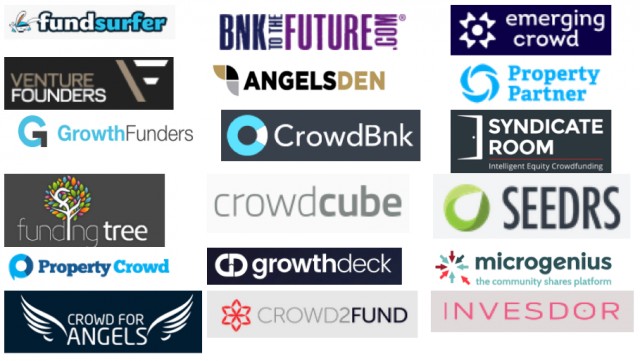Once you’ve weighed the pros and cons of equity crowdfunding versus other ways of raising money, you as a company founder will still be faced by a bewildering array of options over funding portals. In any single country where the legislation has been passed, there can be scores of different equity crowdfunding portals – and to make telling them apart even tougher, most of them they even soundalike; their names almost invariably feature at least one of “Crowd”, “Angel”, “Seed”, or “Fund”. How can a company founder really be expected to tell the portals apart in such a “crowded” space?
Choosing the right crowdfunding portal is like a job interview. You should be interviewing them, just as much as they’re interviewing you. Present yourself well, but make sure that the representatives of the portal aren’t the only ones asking the tough questions.
Above all, keep this one thing in mind – you need to find the portal that gives you the most confidence in their ability to get the job done. Achieving a successful offer is what you’re after. You really do only get ONE shot – I’ve never seen a company that has had a failed offer subsequently re-launch, let alone successfully raise money through equity crowdfunding.
1. Who are their investor audience?
Think of it this way: If you were selling a book, and you could only choose one place to sell it online, where would you go? To get the most interest and the best deal possible, the best thing to do is to list wherever the buyers are… and for books that probably means Amazon. The same is true of equity crowdfunding – you need to go to the portal where your potential investors congregate. So ask the following:
- How many investors do they have in their database?
- How many of these are investing regularly?
- How much money does an average investor contribute?
- Do they have access to any very large investors who could anchor a decent proportion of the raise themselves?
- What are their relationships with the angel and venture capital community?
Gain the greatest possible understanding of what kinds of offers their investors have the most interest in, and you can see how this matches with your own company.
2. What is their success rate?
You should get some basic data from each portal to cut through the impressive website landing pages and well-designed logos that everyone will have.
- How many equity crowdfunding raises have they done?
- How many of these raises reached their minimum target?
- And most importantly, what have they learned from their failures?
The offers that actually go live are only a small fraction of the companies that would like to raise; in industry-speak, this is called “curation”. The best platforms with the best reputations can afford to pick and choose the companies they list on their portals more carefully. With a reputation for only listing better-quality companies, the platforms hope to gain a better shot of using this reputation to be the “place to be” for more investors.
The portal you can launch with should have a high success rate. What constitutes “high” varies hugely from country-to- country, but by comparing success rates between different portals within your country, you will get a good handle on which portals will give your offer the best shot of reaching your own target.
3. What sorts of companies have raised with them before?
Portals differentiate themselves in many ways. Some of these include:
- Size of raise
- Stage of the company (start-up vs. seed vs. expansion vs. later-stage)
- Sector (e.g. biomedical, consumer items, software)
- Innovative structuring of deals vs. established practice
Consider that the best portal for you may not necessarily be the one with the most investors in their database or the most funds raised – your company might well be a better fit with a smaller portal with a more specialised interest in your type of company.
4. What are the fees?
Portals may charge an initial application fee to even assess your suitability for equity crowdfunding. While this may seem harsh, more and more portals are doing this in response to the overwhelming volume of companies that approach them wanting to raise money. By applying this initial filter, they hope to screen out the non-serious applicants, and spend more of their time with the companies with a realistic shot.
The majority of fees will be structured as a percentage of funds raised, which means they are only payable if your raise reaches its target. Depending on the portal, the success fees will typically range between 5 – 10%.
Know the fees, but don’t have them as your primary consideration. It would be foolish to raise with a platform that you judge as inferior, just because they’re cheaper. Remember, a successful offer is what you’re after – you’d rather pay a high fee on a successful raise than no fee because your offer failed.
5. How much will they help you?
Beyond just putting your offer on their site, equity crowdfunding portals should help out in other ways.
- How much of their time they will devote to you and your offer?
- How many people do they have in their team in total to do this?
- What have prior companies that have worked with them had to say about their internal capability?
Some portals will expect you to bring the offer together largely by yourself, while others will hold your hand more, with more significant resource devoted to making your offer a success.
Don’t be surprised if the portals with higher success rates and higher fees are the same ones that are able to offer more services. The portals with the higher success rates get the best companies, therefore attract the most investors, then can charge higher fees which allows them to devote more effort to make their offers successful… a virtuous circle.
6. Do you like them?
Don’t overlook the human element. An equity crowdfunding campaign takes place over many weeks, featuring demanding deadlines, tough conversations and high stakes. You will want to spend this time with people you can get on with and see yourself working with professionally. Go and meet the actual team members that you will be interacting with during an offer and see if you connect with them. Ask about their experience and background, and ask yourself: “does this person fill me with confidence?”
— –
If you’re like most people, you probably never gave a thought to just how many different equity crowdfunding portals are out there, and at first glance they all look pretty similar. But look deeper. Your choice of portal is one of the most critical decisions you can make – the amount of variation within the industry necessitates taking the time and effort to understand which portal is right for you. That way, when it comes time for you to take your ONE shot, you have the best chance of success.
A look at the pros and cons of white-label platforms, platforms that operate nominee accounts and a more detailed look at various platform fee structures will be covered in subsequent posts.




Thanks for this article, it gives a lot of great information. I see it was written in 2016. Any chance you will be updating it soon?
I need to include few more information about the exciting available crowdfunding scripts which will give readers a more value with this article.
You can revert back with reply soon on my email – [email protected]